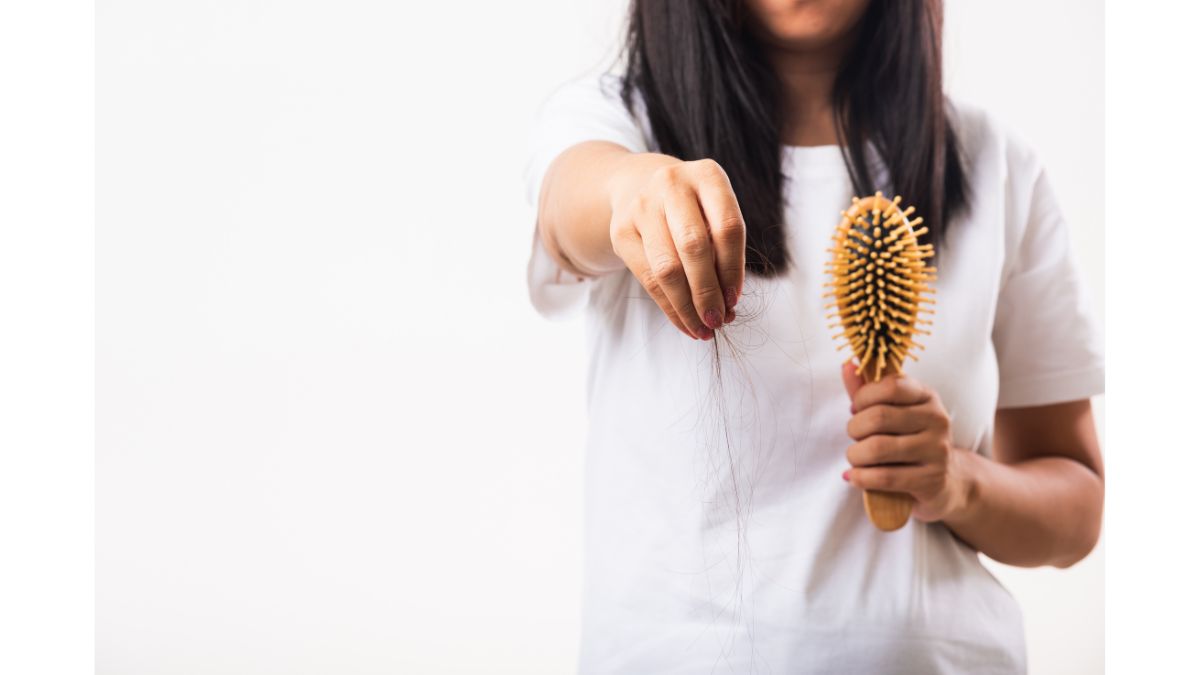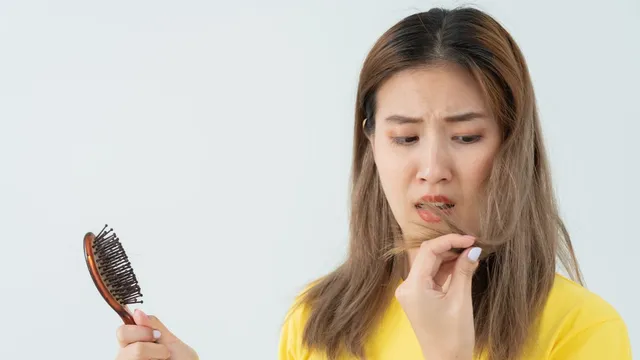- By Prerna Targhotra
- Sun, 14 Jul 2024 06:02 PM (IST)
- Source:JND
Humidity, the amount of moisture in the air, significantly impacts the health of your scalp and hair. High humidity levels can cause a range of issues, from oily scalp conditions to frizzy hair, making it crucial to understand how to manage these effects for optimal scalp and hair health.
In a conversation with Jagran English, Dr BL Jangid, Dermatologist, Hair Transplant Surgeon and Founder of SkinQure Clinic, New Delhi Saket explained how humidity affects hair and scalp and how one can prevent its repercussions.
Humidity And Oily Scalp
When humidity levels rise, the scalp can become excessively oily. This happens because high moisture levels in the air prompt the scalp to produce more oil. Excessive oil can block hair follicles, leading to scalp buildup, itchiness, and conditions like folliculitis and seborrheic dermatitis. Folliculitis is the inflammation of hair follicles, often resulting in red, itchy bumps, while seborrheic dermatitis leads to scaly patches and persistent dandruff.
Dandruff And Humidity
Dandruff, characterised by the shedding of dry white flakes from the scalp, can be exacerbated by humid conditions. Humidity provides a favourable environment for the growth of Malassezia, a type of yeast that feeds on scalp oils and can lead to dandruff. This fungal infection causes the scalp to shed more skin cells than usual, resulting in visible flakes and often leading to scalp irritation and redness.
ALSO READ: How To Get Rid Of Black Spots On Skin? Expert Lists Effective Home Remedies
Impact Of Humidity On Hair
Hair tends to absorb moisture from the air in high-humidity environments resulting in frizz and lack of volume. This is particularly problematic for individuals with curly or wavy hair, as the increased moisture disrupts the natural pattern of the curls, making hair appear unmanageable.

Haircare Tips For Monsoon (Image Credits: Canva)
Preventive Measures and Treatment
Proper Hair Care Routine: Use a sulphate-free shampoo to prevent the scalp from becoming too dry and exacerbating dandruff or seborrheic dermatitis. Incorporating an anti-dandruff shampoo once or twice a week can help control scalp conditions without over-drying the hair.
Avoid Excessive Oil: Contrary to popular belief, applying large amounts of oil to the scalp can worsen scalp conditions in a humid environment. Oil can trap moisture and create an ideal environment for fungal growth. If you need to oil your hair, use it sparingly and avoid leaving it on overnight.
Consult a Dermatologist: For persistent scalp issues, it’s crucial to seek professional advice. Dermatologists can diagnose specific conditions like scalp psoriasis, seborrheic dermatitis, or severe dandruff and recommend appropriate treatments. Self-medication with online products can be risky, as these often contain generalised concentrations of active ingredients that may not suit everyone’s scalp condition.
Diet and Lifestyle Adjustments: Maintaining a balanced diet and managing stress levels can also help improve scalp health. Stress-induced hormones can trigger scalp conditions, and a diet high in oily and junk foods can exacerbate issues like seborrheic dermatitis.
According to Dr Jangid, humidity significantly affects the scalp and hair, causing oily scalp conditions, dandruff, and frizz. By understanding these effects and adopting a tailored hair care routine, you can mitigate the adverse impacts of humidity. Consulting a dermatologist for persistent issues and making lifestyle adjustments are also key steps in maintaining a healthy scalp and hair in humid conditions.

